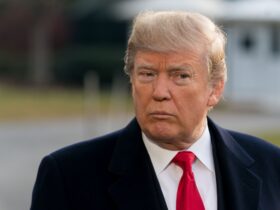Amid vaulting China-US one-upmanship and US President Joe Biden’s recriminations against Russia, East-West tensions spilling onto the turf of sports didn’t raise many eyebrows as Washington announced a diplomatic boycott of the Winter Olympics, scheduled in Beijing from February 4-20 next year, triggering a swift response from China amid a Yuletide season rendered hot by geostrategic tensions.
Acerbic relations between the two superpowers have recently been in flux as the United States under Joe Biden has raised the heat on China under Xi Jinping’s stewardship.
Taiwan, Hong Kong, weaponization and the battle for one-upmanship in the South China Sea have littered the turf of bilateral ties between the two nations. Sports — recently being used as a weapon of attrition in international politics — is increasingly coming to the fore in the arena of inter-state confrontation.
The boycott doesn’t seem to be out of sync with what has been transpiring between the two nations — one of which always draws fire for calling itself the leader of the free world.
“It’s understandable as long as they are sending athletes,” said a former Chinese sports journalist, talking about the move that wouldn’t directly affect athletes.
Germany’s Thomas Bach, a 1976 Olympic fencing gold medallist, lost the opportunity to defend his Olympic title in 1980 after the Western Bloc boycotted the Moscow Games, added the journalist.
Bach, now the President of International Olympic Committee (IOC), has said that he chose to be politically neutral in the face of the boycott by Washington.
Australia, the United Kingdom and Canada have been doing the US’ bidding by announcing diplomatic boycott of the Winter Games by citing concerns over China’s human rights record.
What is important is that athletes are participating, the German official said.
Chinese mouthpiece Global Times had another take on the controversy. Calling the boycott a “US hijack”, it said Washington had turned it into a small ‘clique’ diplomatic tool.
Zhao Lijian, spokesperson of the Chinese Foreign Ministry, told a press conference that the US has been fabricating the biggest lie of the century about so-called “genocide” in China’s Xinjiang region, which has been “refuted” by facts.
“Based on ideological biases and lies, the US is trying to disturb the Beijing Winter Olympic Games. The practice violates the principle of political neutrality enshrined in the Olympic Charter, runs counter to the Olympic motto of ‘together’ and stands on the opposite side of global athletes and sports fans,” Zhao said.
Quite unbeknownst of what was happening on the sports front, China had its eyes set on space from where three Chinese astronauts — called ‘taikonauts’ — delivered a lecture to schoolchildren who had their eyes fixed on the classroom screen.
Dressed in blue space suits, the trio demonstrated several interesting experiments, including those on surface tension and motion and how objects behave differently in space.
Back on earth, at a Chinese tea house in Anhui province in eastern China, people talked about Chinese-style democracy as steaming tea was poured into bowls. A Ukrainian man explained how the Chinese went about their business in the 100-year-old tea house, Xinhua News Agency reported.
Back in Ukraine, thousands of miles away, the threat of a Russian invasion was another factor playing in the minds of people as the Kremlin flexed its muscle over the territorial conflict.
From the tea house to the Crimean Peninsula — when China and Russia are there, can their brand of democracy be far behind.













Leave a Reply